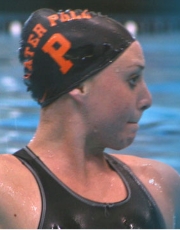Teens Discuss Sports and Share Tips
There are many sport activities that youth with JSpA can enjoy. Your doctor and physical therapist can help you choose a sport that is most appropriate based on interests and physical condition. In general, if a sport causes significant and lasting pain, then you can lessen the intensity, change how you do it, or if none of those is sufficient, switch to another sport to stay active. Besides choosing the right sport, it is also important to pay attention to proper posture and technique to minimize the risk of injury and maximize the benefits of playing sports.
Read below as other teens living with JSpA share tips and their advice on keeping active and enjoying their favorite sports.



